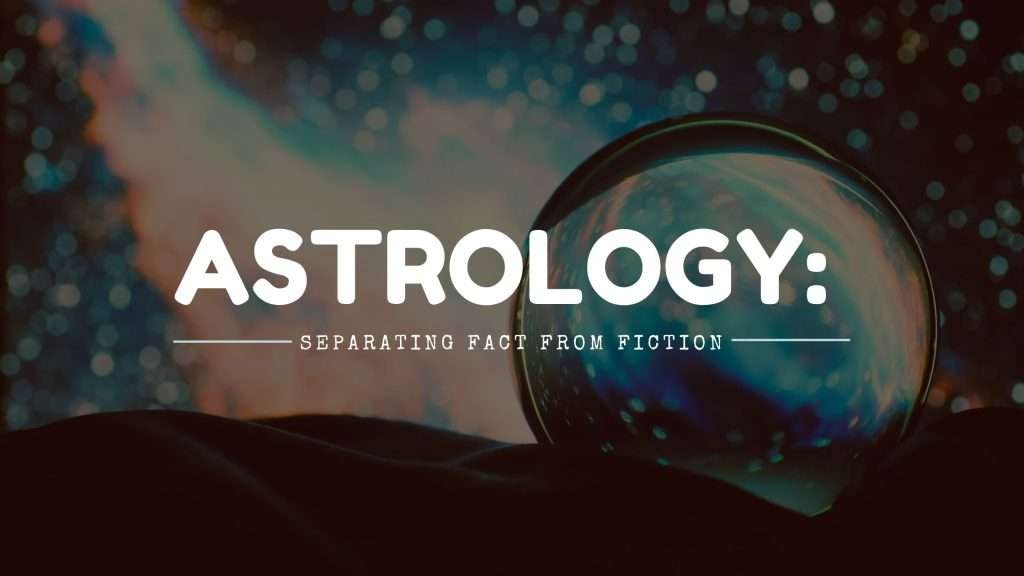Astrology is a language of patterns and archetypes. It’s not uncommon for humans to look at the chaos of their lives and seek a deeper sense of order and meaning. Since the beginning of human history, we have been telling tales about the cosmic energies on stage in the sky. But because of it’s pop-culture appeal, misconceptions about astrology are not uncommon.
The spread of knowledge on this topic has never been so vast. We’re still getting newly translated information from historical astrologers and we’re still finding new energetic bodies, calculations, and consequences therein.
In this article, I want to briefly address some of these falsely held beliefs around astrology as well as potentially enlighten you to a few facts that you may not have known about this cosmic language.
Common Misconceptions
It’s really easy to fall into the influencer-loop when it comes to astrology. By narrowing one’s focus to a very specific and commonly held understanding of the art, those in the industry can easily capture a larger market to capitalize on. It makes sense and is a perfectly nature response to this type of material in this type of economic system.
However, the art of astrology is not as simple and things like difficult transits and the doom and drama that “malefic” planets cause when parading through your chart can be easily understood and strategized rather than feared. Here are some ways that you may encounter astrology as being tritely discussed.
🚫 Astrology is only used for prediction.
Many people associate astrology primarily with daily horoscopes in newspapers and magazines. In reality, astrology is a complex system that includes natal charts, planetary movements, and intricate calculations, offering a more profound understanding of one’s personality and life path.
While astrology can offer insights into potential life trends and influences, it’s not primarily focused on predicting specific events. It’s more about understanding the energies at play and how they can guide personal growth and decision-making.
🚫 All you need is a birthday.
When using astrology to gain insight on a particular individual or an event, the information you require is much more in-depth than just the day. In order or accurately calculation all of the factors related to a astrological chart, one should have the following information:
- Date in Event or Birth (Month / Day / Year)
- Time of Event or Birth (The more accurate the better.)
- Location of Event or Birth (Precise coordinates are preferred.)
These pieces of information are used to calculated the exact position of the sun along the horizon. This will give the astrologer the ability to gather a more accurate look at where specific energies like the Ascendent, Midheaven, and other items are located in the chart in question.
It is possible to rectify an astrological chart if the time or location are missing, but this should only be done by an experienced astrologer who knows how to ask the right questions to build a historical case for a particular position for the houses.
🚫 There is no such thing as fate or free-will.
Some critics argue that astrology lacks scientific credibility. While it’s not a traditional science, astrology is an ancient and well-established system that holds deep cultural and historical significance. It’s a symbolic and psychological tool that has provided meaning and guidance for centuries.
One could argue that without free-will, there is no purpose to suffer at the hands of fate. Similarly, one could argue that without a sense of fate, the is no meaning in the stars because all actions are that of free-will. The truth seems to present itself in reality as something of a blend between these energies.
While astrology may predict the general patterns, energies, and archetypes that a person may encounter during that time—it is important to emphasize that these energies can present themselves in a variety of different ways. The host always has the free-will to choose actions and internalize experience however their conscious mind desires. This is how we can live a seemingly infinitely different series of lives with very similar transits.
Astrology is neither predictive nor presumptive. You always have the control over whether or not you will embrace the ebb and flow of the energies the universe has to offer.
What is Astrology?
Astrology is a language that describes the energetic signatures of near-by celestial bodies based on their placements relative to our perspective of them. Most people are familiar with the 12 zodiacal sun signs from the social media or (if you’re old school) newspaper horoscope section. Astrology is more than just your sun sign though and includes various other components, such as the individual planets, houses, mathematically calculated points, and geometric aspects based on these angles to each other. Each element plays a unique role in an astrological chart.
An astrologer takes those positions as it relates to a particular time and place and uses a language of patterns and analysis to describe the chart in question. You can use it for a variety for purposes including self-discovery and growth, predicting potential outcomes for events, or understanding the dynamics of relationships or stages in one’s life.
Astrology is more than just daily horoscopes and fortune-telling. It’s a dynamic system with deep roots in history and culture, offering a rich tapestry of self-discovery and cosmic understanding. By separating fact from fiction, we can appreciate astrology for what it truly is: a journey into the stars, an exploration of our inner cosmos, and a profound guide on our life path.


